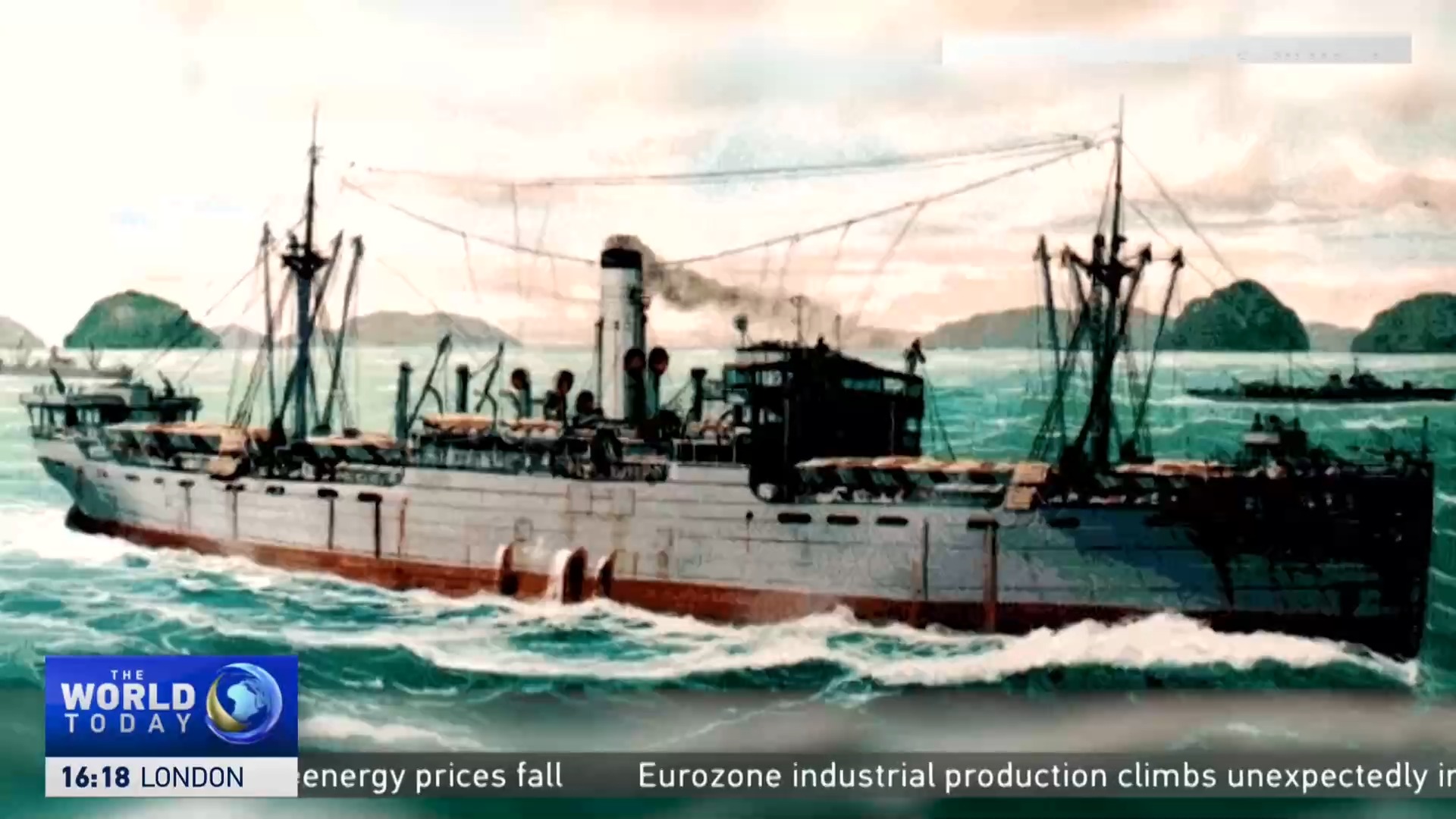02:59

The British Film Institute in London on Tuesday hosted a private viewing of a documentary by Chinese director, Fang Li. The film, The Sinking of the Lisbon Maru, is about a World War II atrocity in which some 800 British prisoners of war (POWs) died at sea after a Japanese ship they were aboard was torpedoed by the U.S. Navy.
It's a human story about suffering and bravery under terrible circumstances, including potential war crimes. It's also a film about selflessness, with several hundred of the prisoners being rescued by Chinese fishermen who risked their lives to pull them from the shark-infested East China Sea.

At the end of the preview, there was an impromptu standing ovation. /Zhao Zixuan
At the end of the preview, there was an impromptu standing ovation. /Zhao Zixuan
Most of the guests who were invited to attend the screening of the documentary were relatives of British POWs who had been aboard the ill-fated ship. Some were spotted wearing their father's medals.
The documentary included testimonies from the last two surviving POWs and the one remaining Chinese fishermen involved in the rescue, all of whom have since died. As well as photos, reconstructions and artist impressions, there were interviews with relatives, many of whom attended the screening.
Lisbon Maru
The Lisbon Maru was a Japanese cargo ship that was converted into an armed troop carrier.
In October 1942, it was carrying 1,816 British POWs from Hong Kong to Japan when it was hit by a torpedo from a U.S. submarine which, seeing the guns on deck, thought it was a troop ship. The Lisbon Maru was not showing Red Cross signs or other indicators that it was a prison ship, as stipulated under international law.

The last shot of the Lisbon Maru before it went down.
The last shot of the Lisbon Maru before it went down.
As the boat started to sink the Japanese troops were evacuated but they locked the prisoners below deck in three separate holds. Many managed to escape from two of the holds but were then shot at as they jumped into the sea. After a ladder in the final hold snapped, most of those within went down with the ship.
In all an estimated 828 prisoners died – trapped on board, shot or drowned at sea – until a flotilla of poor Chinese fishermen from a nearby island came to the rescue in their tiny sampans. The Chinese risked their lives amid the shooting and managed to take almost 400 survivors back to their small island.
Most were recaptured the following day by the Japanese and ended up in prison camps, but the kindness was never forgotten. The islanders did hide three of the POWs who eventually made their way back to England to spread the news.
Denise Bowditch's father was one of those rescued by Chinese fishermen. She came to the screening with her brother, daughters and nieces. Watching the film was an emotional experience for her.

Relatives of the POWs, speaking after the preview, were universally impressed. /Zhao Zixuan
Relatives of the POWs, speaking after the preview, were universally impressed. /Zhao Zixuan
"We were in tears to think what our father went through," Bowditch told CGTN Europe after seeing the documentary.
Her niece, Nicola Brooks, was impressed by the way the Chinese fishermen looked after her grandfather.
"One thing I will take away today despite the sadness and the gravity is the unity between the Chinese fishermen and the prisoners of war, and how that relationship will always be strong and admired everywhere," Brooks said.
John Cooper's father was another POW rescued by Chinese fishermen.
"We may have differences with contemporary China, ideologically and all that sort of thing, but we share this history and we share this desire for peace. I think the film is a great contribution to that," Cooper said.

Fang Li thought the story needed to be highlighted. /Zhao Zixuan
Fang Li thought the story needed to be highlighted. /Zhao Zixuan
Film producer and director Fang Li first learned of the incident almost 10 years ago. Fascinated that so few had heard the tale, Li launched a search for the sunken ship and then set out to find any survivors and relatives, which is when the idea for the documentary took shape.
In 2019 he invited some of the families of those who died aboard the Lisbon Maru to come to Dongi island for a remembrance ceremony, and then a boat ride out to the sunken wreck.
Fang Li found making the documentary to be emotionally difficult at times.

The film's crew members (front, in black T-shirts) were touched by the subject material. /Zhao Zixuan
The film's crew members (front, in black T-shirts) were touched by the subject material. /Zhao Zixuan
"After the first interview, April 2018, every day we, all of the crew, everyone was in tears. They were all heartbreaking stories," Li told CGTN.
So what message did he hope audiences would take away from the film? "I hope the audience worldwide will remember we are all human beings. We want to live in peace and let's remember all those who sacrificed their lives for freedom, for our peace."
The documentary will be taken around the UK over the next week, being shown at the regimental headquarters of those units which had prisoners aboard the Lisbon Maru. But the makers are still looking for a British distributor so the film can go to general release.
Subscribe to Storyboard: A weekly newsletter bringing you the best of CGTN every Friday